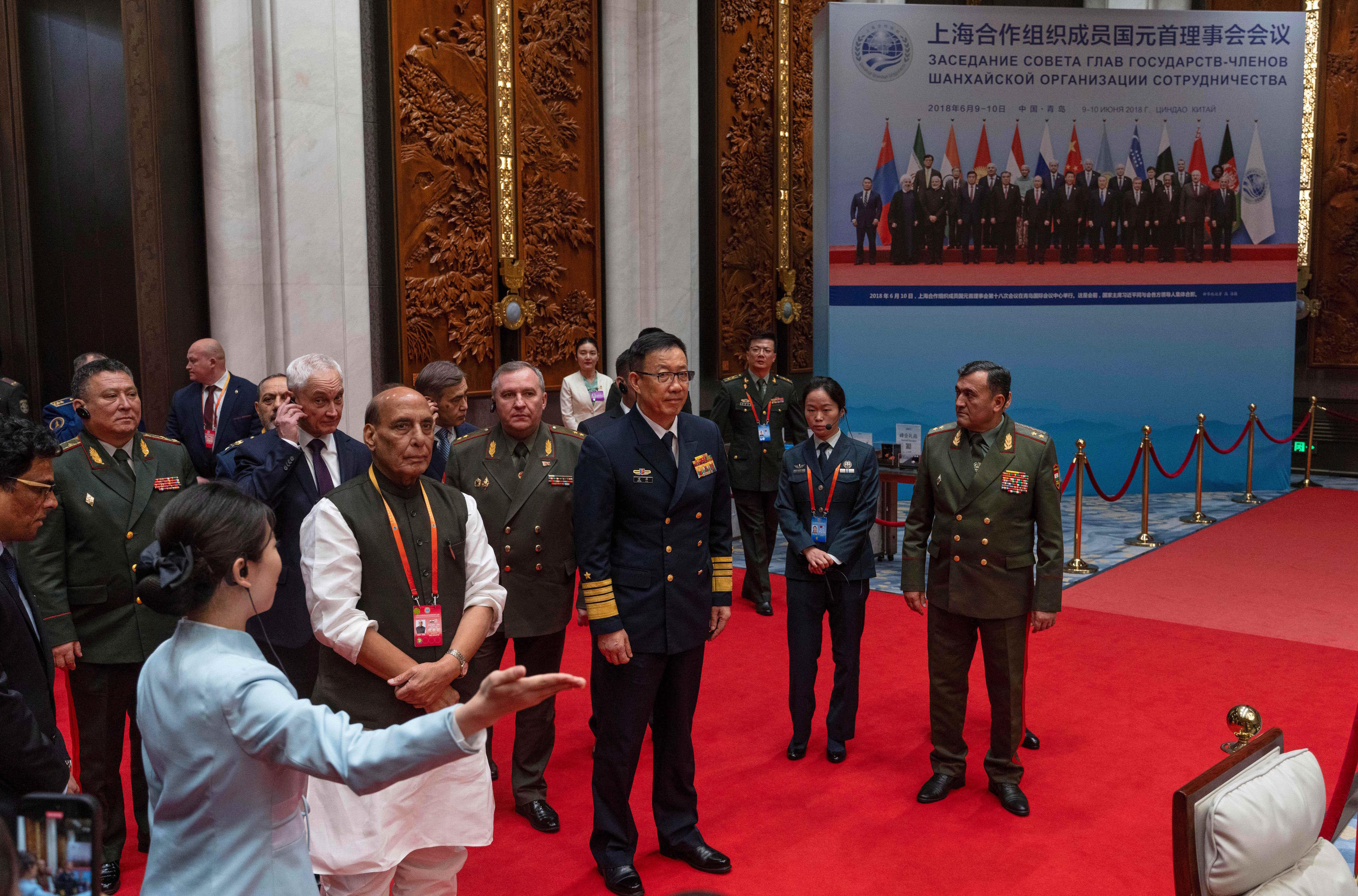One day after the NATO summit in The Hague, where the allies approved the largest increase in military spending in their history, China welcomed the Defense Ministers of the Shanghai Cooperation Organization (SCO), a group that Beijing has been trying to present as a counterbalance to Western-led blocs.
The meeting took place on Thursday in Qingdao, on the east coast of the Asian giant. The main attraction was to see the Defense Ministers of China, Russia, and Iran together after the escalation of the conflict in the Middle East, the U.S. attack on Tehran's nuclear facilities, and the ceasefire between the Islamic Republic and Israel after 12 days of fighting.
"Hegemonic, dominant, and abusive acts seriously undermine the international order," said the host, Chinese Minister Dong Jun, in a welcoming speech. Dong described the meeting of the SCO representatives as "a counterbalance to a world shaken by chaos and instability".
Also present in Qingdao were the Defense Ministers of the four Central Asian nations that are part of the SCO (Kazakhstan, Kyrgyzstan, Tajikistan, and Uzbekistan), and the official from the latest country to join the club, Belarus. Many eyes were also on the participation of the two latest members, the Defense Ministers of India and Pakistan, two nuclear-armed neighbors who in May were on the brink of total war after several exchanges of bombings and artillery in the disputed region of Kashmir and in various border states.
As expected, the unity that China tried to sell regarding this SCO meeting was broken when the representatives of New Delhi and Islamabad intervened. "Some countries that use terrorism as a state policy must be denounced," said Indian Minister Rajnath Singh, who accuses Pakistan of supporting terrorist groups behind the attacks in Indian-administered Kashmir.
On another front, when Israel began the recent military operation against Iran, the regional bloc led by China issued a statement strongly criticizing the attack. However, India distanced itself from the joint declaration, as it has been diplomatically maneuvering to avoid condemning Israel, with whom it has close defense relations, while maintaining its historical ties with Tehran.
The SCO was formalized in 2001 to resolve the border disputes left in Central Asia by the dissolution of the Soviet Union. Later, the group evolved into a regional economic forum under China's leadership. In recent years, Beijing and Moscow have been trying to promote the grouping, which represents over 40% of the world's population, as what some think tanks linked to the United States called a kind of "anti-NATO".
Chinese officials have been following the course of the NATO summit this week, where the Alliance's Secretary-General, Mark Rutte, urged countries to be realistic about the threats posed by Russia and China. Rutte also noted in a statement that the allies were "very aware" of the "enormous military buildup" of the Chinese army, which raises the threat of conflict in the Taiwan Strait.
This Thursday, some Chinese state media dedicated their editorials to the 5% increase in military spending by NATO countries and Beijing's concerns that the Alliance may seek to expand militarily into Asia along with its allies in the region, mainly Japan and South Korea.
"If NATO insists on extending its military tentacles to Asia, it is almost certain that the more its military spending increases, the greater the strategic suffering Europe will have to endure," stated the Global Times. "NATO, a war machine that should have been dismantled long ago, now depends on clinging to the coattails of the United States and doing Washington's dirty work to survive," criticized another column in the China Daily.
